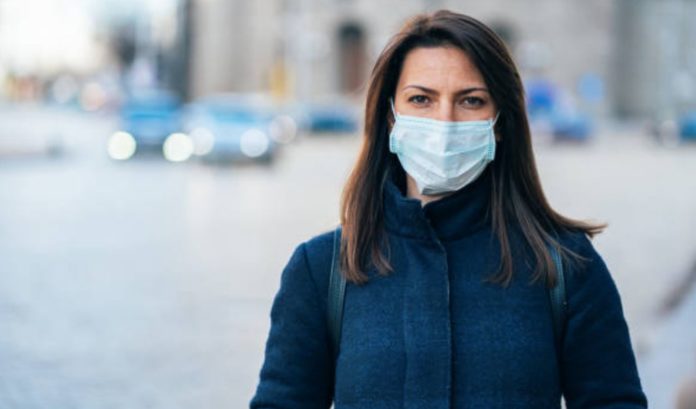A study carried out on almost 50,000 Americans shows that people who do not ‘Get Enough Exercise’ or prone to being inactive are 75% more vulnerable to severe coronavirus infection and having a two-and-a-half-fold higher chance of dying from the disease.
Being inactive or not getting enough exercise is linked to a two-and-a-half-fold increase in the likelihood of death, a doubled risk of hospitalization, as well as a 75 percent higher chance of needing intensive care.
- Does This Mean We Stopped Being Animal and Started Being Human Due to ‘Copy Paste’ Errors?
- The One Lifestyle Choice That Could Reduce Your Heart Disease Risk By More Than 22%
- Aging: This Is What Happens Inside Your Body Right After Exercise
- Immune-Boosting Drink that Mimics Fasting to Reduce Fat – Scientists ‘Were Surprised’ By New Findings
- Gun Violence in America: What They Don’t Talk About at the Debate
Researchers say not getting enough exercise was “the single most important factor” and had even more of an impact than smoking, obesity, diabetes, high blood pressure, heart disease, and cancer.
Only age and having had an organ transplant had more of an effect on the outcome of the disease, the study of almost 50,000 Americans showed.
The team behind the findings, from the Kaiser Permanente Southern California Department of Research and Evaluation, said walking just 30 minutes for five days a week could mean the difference between life and death.
Dr. Deborah Rohm Young, the co-author of the study, said: “What surprised me the most from this study was the strength of the association between inactivity and poor outcomes from Covid-19.
“Even after we included variables such as obesity and smoking in the analysis, we still saw inactivity was strongly associated with much higher odds of hospitalization, ICU admission, and death compared with moderate physical activity or any activity at all.”
“It is notable that being consistently inactive was a stronger risk factor for severe Covid-19 outcomes than any of the underlying medical conditions and risk factors except for age and a history of organ transplant.”
“In fact, physical inactivity was the strongest risk factor across all outcomes, compared with the commonly cited modifiable risk factors, including smoking, obesity, diabetes, hypertension, cardiovascular disease and cancer.”
She added: “We recommend that public health authorities inform all populations that short of vaccination and following public health safety guidelines such as social distancing and mask use, engaging in regular physical activity may be the single most important action individuals can take to prevent severe COVID-19 and its complications, including death.”
“This message is especially important given the increased barriers to achieving regular physical activity during lockdowns and other pandemic restrictions.”
The study showed that those who got ten minutes, or fewer, of exercise each week were the worst affected.
Dr. Robert Sallis, a family, and sports medicine physician at the Kaiser Permanente Fontana Medical Center said: “Walk 30 minutes a day, five days a week at a moderate pace and that will give you a tremendous protective effect against Covid-19.
”I continue to believe that exercise is medicine that everyone should take – especially in this era of Covid-19.”
To reach their findings, the researchers collected data on 48,440 Americans who had received a Covid diagnosis.
The group of patients had an average age of 47, included 70 per cent females, and were ethnically diverse.
All of them had reported their level of regular physical activity at least three times between March 2018 and March 2020 at outpatient clinics.
Just 6.4 per cent were classed as “consistently active” – meaning they exercised at least 150 hours a week, meeting health guidelines.
More than twice as many, 14.4 per cent, were considered “consistently inactive”, with 10 minutes or less exercise each week, while the remainder were classified as “inconsistently active” – meaning they were exercising between 11 and 149 minutes per week.
- Does This Mean We Stopped Being Animal and Started Being Human Due to ‘Copy Paste’ Errors?
- The One Lifestyle Choice That Could Reduce Your Heart Disease Risk By More Than 22%
- Aging: This Is What Happens Inside Your Body Right After Exercise
- Immune-Boosting Drink that Mimics Fasting to Reduce Fat – Scientists ‘Were Surprised’ By New Findings
- Gun Violence in America: What They Don’t Talk About at the Debate
White patients were most likely to consistently meet physical activity guidelines – 10 per cent, followed by Asian patients at seven per cent, Hispanic patients – six per cent, and African-American patients at five per cent.
Of the entire group, nine percent were admitted to hospital, around three per cent required intensive care, and two per cent died.
The findings have been published in the British Journal of Sports Medicine.
